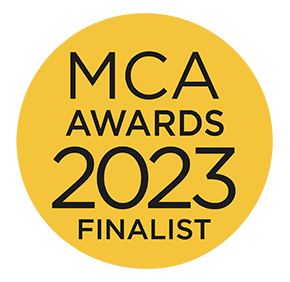Strategy
 KPMG was engaged by City, University of London to help it develop a fresh strategy that was innovative, collaborative and holistic. The strategy needed to: provide clarity of direction; build alignment; and enhance perceptions of the University among students, potential students, the community and other key stakeholders.
KPMG was engaged by City, University of London to help it develop a fresh strategy that was innovative, collaborative and holistic. The strategy needed to: provide clarity of direction; build alignment; and enhance perceptions of the University among students, potential students, the community and other key stakeholders.
The university’s previous strategy had prioritised strengthening its research credentials. The new President was keen to rebalance the strategy to focus more on the university’s people – both students and staff; and build a distinct positioning between Russell Group and more vocationally-focused universities.
Against the background of Covid-19, lockdowns and industrial action in the sector, the KPMG team worked with the newly appointed President, Professor Sir Anthony Finkelstein, and his team, led by Professor Debra Salmon, to drive a process resulting in a clear, coherent strategy which achieved these objectives and garnered widespread support both within the university and among the student body. It also delivered a strong social benefit for the university by enhancing student prospects and increasing its impact in its communities.
The President had a clear idea of what was required yet knew this could only happen if all stakeholders were engaged and believed in the strategy. Crucially, these initial high-level ideas also needed testing and building out into an actionable strategy.
Defining the strategy was an iterative process underpinned by extensive analysis and research. Initial ideas were presented and feedback from diverse stakeholders was sought and assessed. Feedback was then incorporated into the strategy and used to refine the ideas, which were then presented back for further feedback.
The breadth and depth of stakeholder engagement was, in our view, unique in the sector. The KPMG team led by Adam Thorpe (Partner) and Ewan Robertson (Director) introduced an innovative method of engaging stakeholders in collaboration with an external people participation agency Clever Together, with the objective to gain in-depth insight into stakeholder views. Via a bespoke anonymous online platform ‘The Big City Conversation’, staff, students and alumni were given the opportunity to share their own ideas and experiences and engage with those of others. The actively facilitated online conversations saw almost 2,000 people take part, providing unique insight to inform the strategy process.
Despite widespread stakeholder involvement, plus the disruptions caused by Covid-19, KPMG maintained the project’s momentum by leveraging technology, such as virtual ‘townhall’ events, to ensure milestones were met.
KPMG emphasised the practical actions which could result from focus groups and meetings. The student focus groups themselves, for example, demonstrated the power of, and demand for, student engagement. The university has continued with regular student focus groups since.
While the full impact of this project is yet to be realised, as the strategy moves through implementation, the process of change has begun, focusing particularly on themes such as student experience, welfare and mental health support, employability, and systems improvement. Early indications are positive, with the university rising in several national league tables, including a rise of almost 50 places in The Guardian’s 2023 university rankings for student satisfaction.
View the KPMG profile in the MCA Members Directory.

